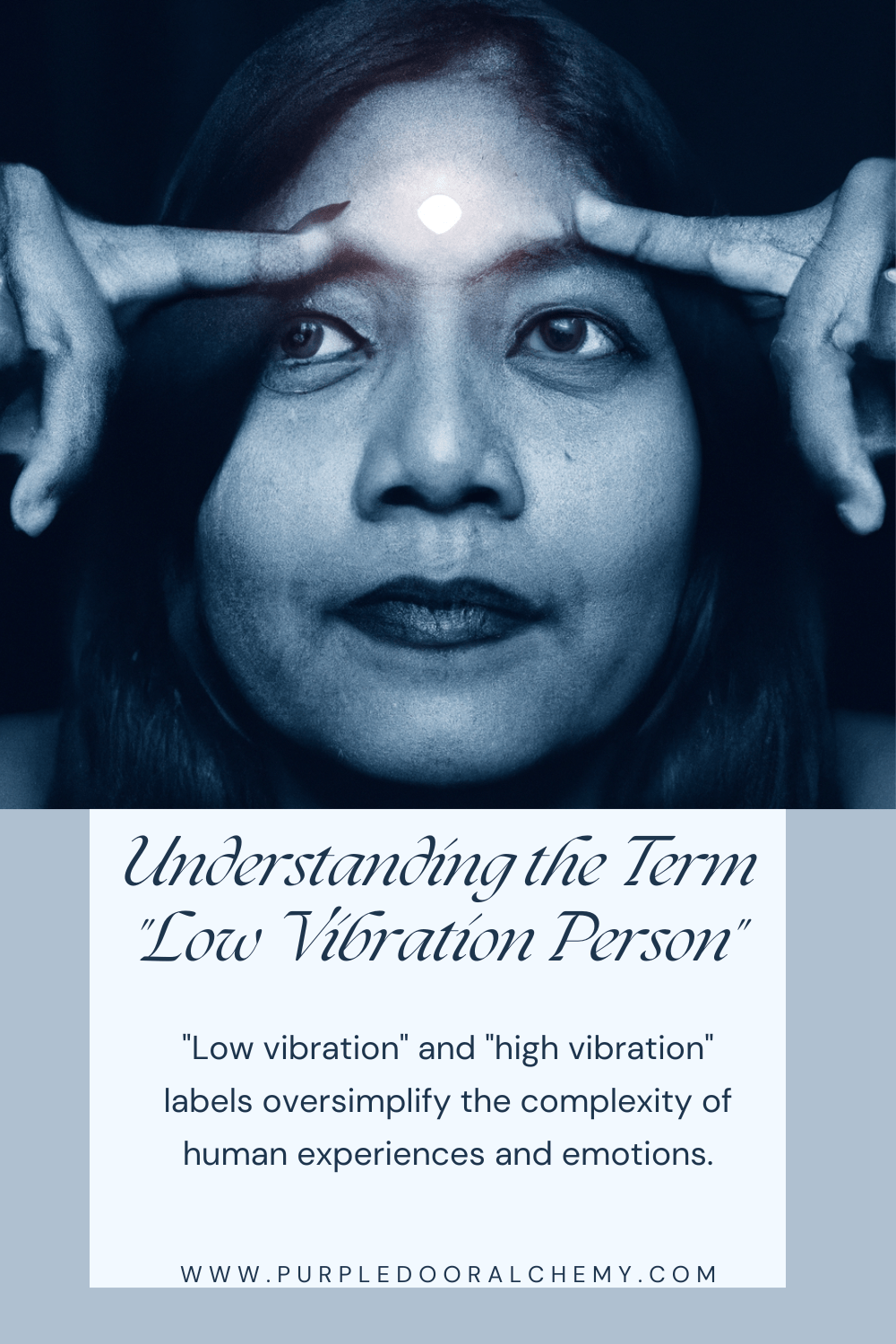
Understanding the Term "Low Vibration Person"
Share
It is important to express some discomfort with the term "low vibration person," as well as its counterpart, "high vibration person." These terms can oversimplify the complex spectrum of human experiences and emotions. It is rare to find someone who consistently fits into either category, as we are all a blend of various vibrations that collectively define our overall vibrational frequency. The aim is to reduce the lower frequencies and enhance the higher ones to elevate our overall state of being.
Our vibrational state can fluctuate significantly throughout the day due to our experiences and emotions. For instance, one might feel low while dealing with stressful traffic but become the life of the party upon arriving at a social event. Similarly, someone might excel at work but feel a drop in their mood when they return home to an empty house. The key takeaway is that our vibrational state is not static; it is dynamic and constantly changing.
In a previous post we discussed vibrational energy and what it means to operate on a high vibration. Individuals perceived as "high vibration” often align with their true selves, respect others, overcoming fear and rejection to pursue their passions or cultivate a magnetic and wise presence that is uplifting to others. However, this does not mean they are immune to occasional setbacks or periods of depression.
The Misconception of Labeling Others as "Low Vibration"
Using the term "low vibration person" should be approached with caution. It is not appropriate to label others in this way, as our interactions with people often occur within a limited context. For example, a seemingly irritable person at the grocery store, some might label them as a “Karen,” but they might be a nurturing and supportive figure in their family.
Only individuals can truly assess their own vibrational states, and even then, we tend to overestimate our own vibrational levels while underestimating those of others. It requires a high degree of self-awareness to identify and address the blind spots that hinder our vibrational growth. As we strive to elevate our vibrations, new areas for improvement continuously emerge.
Moreover, our perception of others is often limited by the context in which we encounter them. We may see someone on a bad day and hastily label them as low vibration, but vibrational states are fluid and nuanced. Assessing another person's vibrational state requires consideration of various factors, from their internal dialogue to their physical health.
At times, we may feel frustrated with others and internally label them as low vibration. It is important to recognize these judgmental thoughts and remind ourselves of the complexity of their circumstances, which we might not fully understand.
The goal of this discussion is not to equip you with a tool to judge others, but rather to provide empathetic insight into behaviors that diminish vibrational frequency, thereby helping us collectively elevate our vibrational states.
Examples of Low Vibration Behaviors
Lack of External Awareness
A high vibrational state involves an acute awareness of our own actions and how they impact others. When we become too self-focused or oblivious, we risk diminishing the experiences of those around us. For instance, playing music at high volume late at night can disrupt others' peace. Such behaviors typically indicate a lower vibrational state due to the lack of consideration for others.
Avoiding Accountability
Lack of responsibility reflects a low vibrational state. Care, respect and responsibility go hand in hand. Whether someone deliberately or accidentally causes harm they should own up to it. No master how small we may perceive the mistake, not owning up to minor mistakes, like losing a colleague’s favorite pen and not acknowledging it, also points to a lower vibrational mindset. True growth and elevation occur when we take responsibility for our actions.
Believing in Ego
Imagination and ego can lead us to believe we know what is best for others. For example, assuming we have the insight to guide someone's career path or personal decisions can be a form of misguided control. Each individual's journey is unique, and projecting our expectations onto others only serves to lower our own vibrational state and potentially frustrate them.
Lacking Confidence to Communicate Directly
Discussing frustrations with a trusted friend can be helpful, but continuously complaining about others without addressing the issues directly indicates a lower vibrational state. This behavior often stems from a lack of confidence or an aversion to conflict. There is great value in finding the courage to communicate openly and respectfully.
Expecting Others to Change
If we frequently find ourselves wishing others would change, it often reflects areas in our own lives where we feel insecure or undeveloped. A secure, confident individual does not rely on others to change to feel comfortable. Accepting people as they are and deciding whether to keep them in our lives is a sign of higher vibrational maturity.
Interfering with Others' Life Choices
Trying to control or prevent others from experiencing their own challenges, such as attempting to save someone from a perceived mistake, can hinder their growth and lower our vibrational state. It is important to recognize that sometimes individuals need to face difficulties to learn and grow.
Disconnect from Inner Guidance
High vibrational states allow us to recognize when our behavior is inconsiderate and prompt us to make amends, such as returning borrowed items in good condition or with a small token of appreciation.
Wasting Energy on Control
Attempting to control others or circumstances drains our vitality and lowers our vibrational state. Redirecting this energy towards more constructive pursuits can significantly enhance our vibration.
By recognizing and addressing these behaviors, we can collectively work towards elevating our vibrational states and fostering a more positive, empathetic, and harmonious environment.